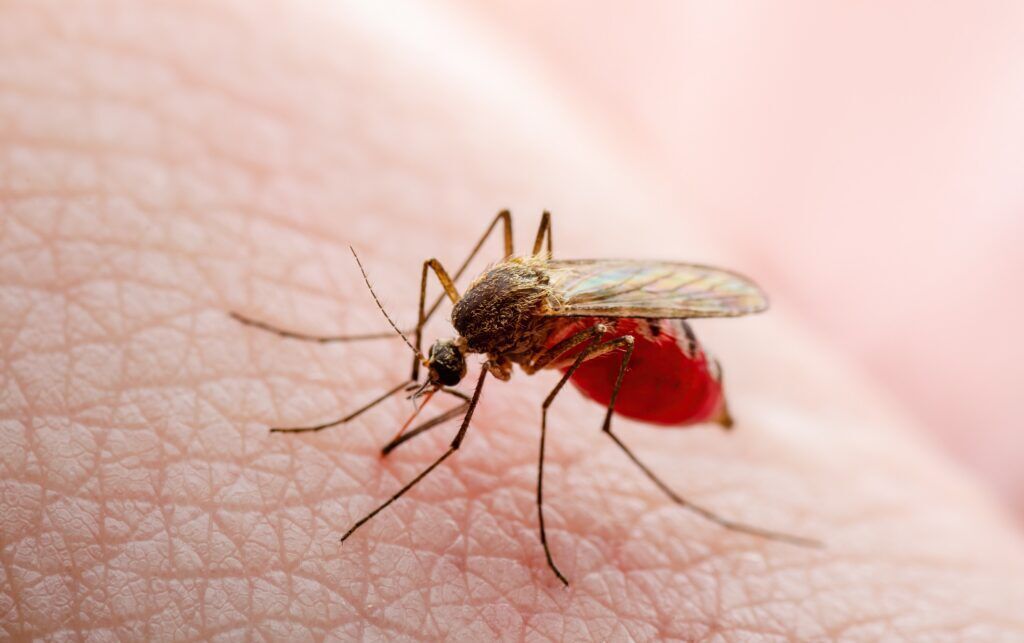Public health officials have warned that cases of dengue fever in Europe are continuing to rise as climate change creates favourable conditions for invasive mosquitoes.
Figures show that last year there were 130 cases of dengue acquired in a European country compared with 71 in 2022.
Between 2020 and 2021 there were only 73 locally acquired cases in total, the European Centers for Disease Control said.
Imported cases are also on the rise with more than 4,900 in 2023 compared with 572 the previous year, officials said.
Related Article: Government seeks pharmacists' views to underpin first-ever men’s health strategy
The Asian tiger mosquito, Aedes albopictus, which is known to transmit dengue as well as chikungunya, and Zika viruses is spreading further north, east and west in Europe and has now become established in 13 European countries including France, Germany and Austria.
Another mosquito – Aedes aegypti – which is a vector of yellow fever, dengue, chikungunya, and Zika viruses also recently established itself in Cyprus.
The ECDC said its potential for establishment in other parts of Europe ‘is concerning due to its significant ability to transmit pathogens and its preference for biting humans’.
Climate change will impact the spread of mosquito-borne diseases in Europe because of the creation of environmental conditions that promote the growth of mosquito populations, the organisation added.
This year, a confirmed locally acquired human case of West Nile virus infection was reported in Seville in Spain in March.
While it was an isolated case, it highlights that the transmission of West Nile virus can occur very early in the year, ‘likely due to suitable climatic conditions’.
The ECDC said public awareness was needed so people can take steps to protect themselves.
Related Article: Vaping trends stall following regulation announcement
This includes simple measures such as removing stagnant water in gardens or balconies where mosquitos breed.
But also taking steps to reduce the risk of mosquito bites including wearing clothes that cover most of the body, using mosquito repellent as well as bed nets or window/door screens, ‘and sleeping or resting in air-conditioned rooms’.
Last year the UK Health Security Agency warned that mosquito-borne diseases are likely to come to the UK in the near future.
In a report on climate change, the Agency said many infectious diseases are ‘highly climate sensitive’, and with warmer temperatures ‘it is increasingly likely’ that we will see the introduction and establishment of a number of invasive mosquito species in the UK.
‘Europe is already seeing how climate change is creating more favourable conditions for invasive mosquitos to spread into previously unaffected areas and infect more people with diseases such as dengue,’ said ECDC director Andrea Ammon.
Related Article: NHSE to ‘expand’ community pharmacy RSV vaccine offer
‘Increased international travel from dengue-endemic countries will also increase the risk of imported cases, and inevitably also the risk of local outbreaks.’
This article first appeared on our sister publication Pulse.


Have your say
Please add your comment in the box below. You can include links, but HTML is not permitted. Please note that comments are not moderated before publication and the views expressed are those of the user and do not reflect the views of The Pharmacist. Remember that submission of comments is governed by our Terms and Conditions. You can also read our full guidelines on article comments here – but please be aware that you are legally liable for any libellous or offensive comments that you make. If you have a complaint about a comment or are concerned that a comment breaches our terms and conditions, please use the ‘Report this comment’ function to alert our web team.